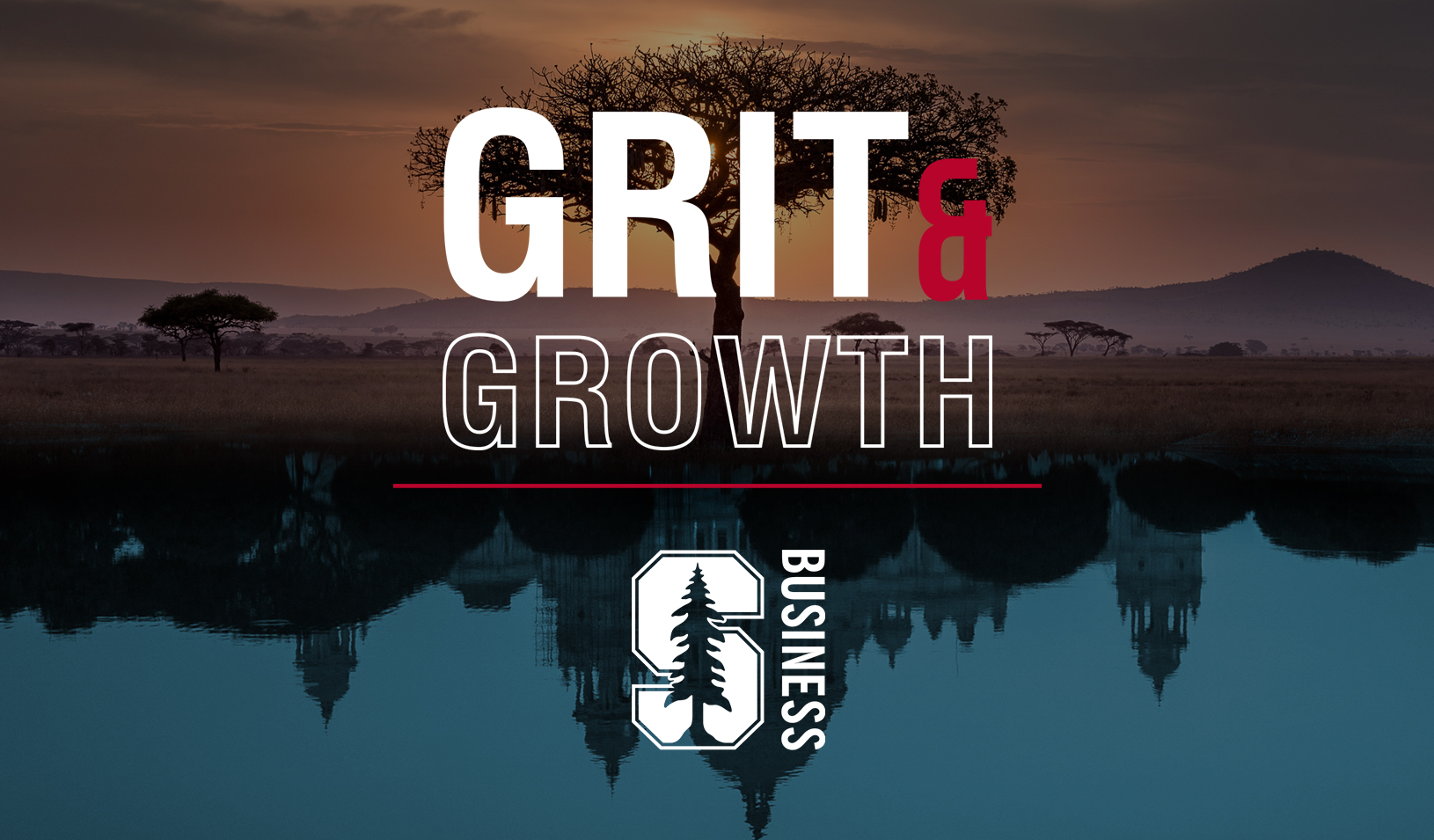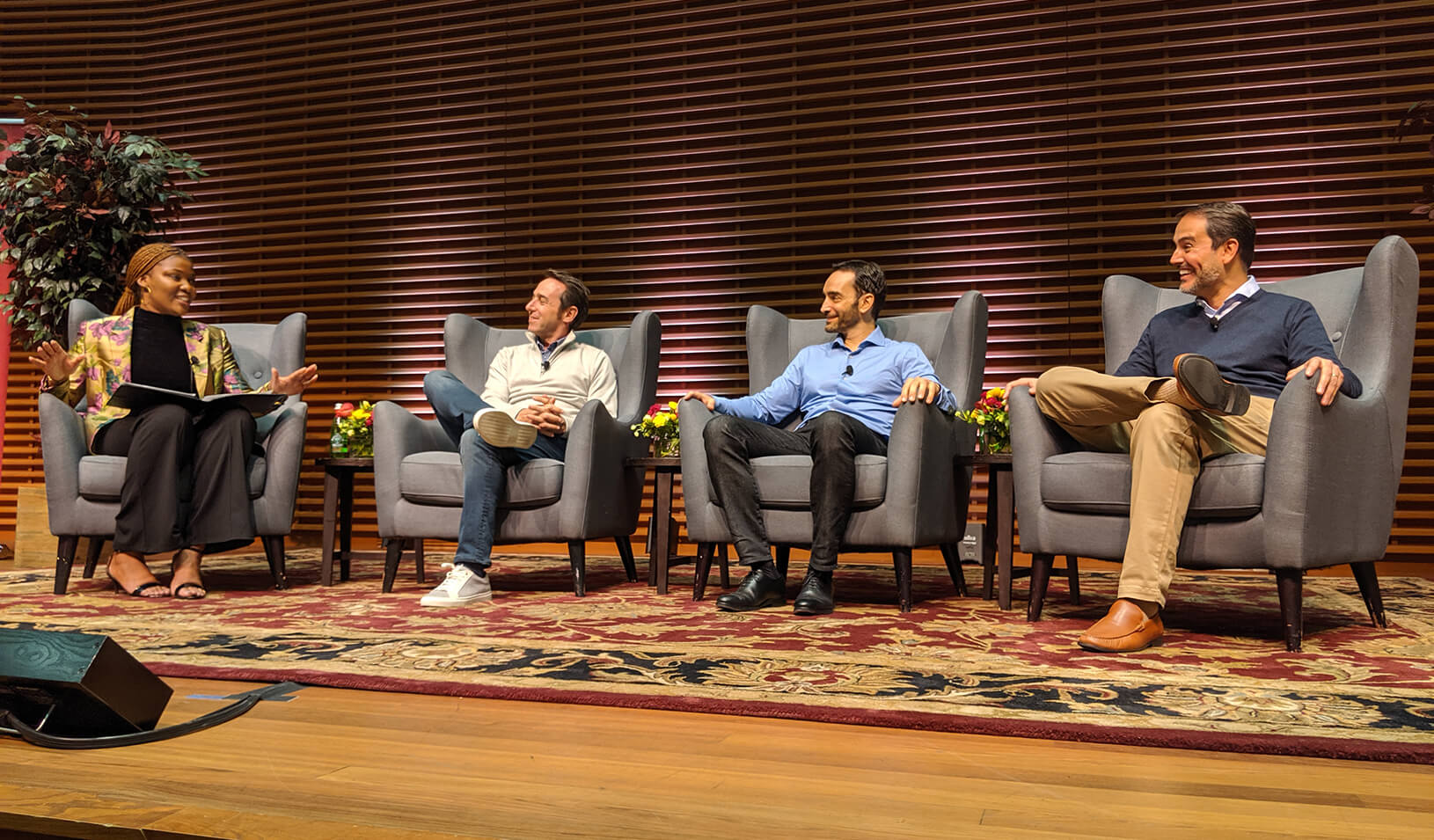
Trae Vassallo (Courtesy KPCB)
Trae Vassallo is a venture capitalist and a former entrepreneur. She is currently a general partner at Kleiner Perkins Caufield & Byers, one of Silicon Valley’s most successful venture capital firms. Prior to joining the firm in 2003, Vassallo was a cofounder of Good Technology, a mobile device company sold to Motorola in 2007. A mechanical engineer, Vassallo started her career at IDEO, designing products for Palm and Dell. She earned bachelor’s and master’s degrees in mechanical engineering from Stanford University and an MBA from Stanford Graduate School of Business, class of 2000. In our interview, Vassallo discusses the evolution of “green tech” investing, the benefits of networking, and her passion for encouraging more girls to pursue careers in science and engineering.
In 10 words or fewer, what is the big idea behind your business?
Partnering with the best entrepreneurs to build world-changing businesses.
What is the best advice you’ve ever received?
Like many engineers, I’m naturally an introvert. I have a tendency to want to focus on my close relationships. Throughout my life, many people have suggested that I try to become open to meeting and engaging new people. That advice has really shaped my career. When I was a student at Stanford GSB in 1998, [KPCB partner] John Doerr came to campus to give a talk. I saw him pause to pick up a paper. Despite feeling embarrassed, I walked right up to him and started a conversation about mobile technology and entrepreneurship. It was a memorable talk that led me to cofound Good Technology. Despite the fact that most entrepreneurs were building websites at the time, mobile was becoming a strong area of interest for John and his partners. I never would have known that if I hadn’t taken the initiative to say hello.
I used to think networking was a superficial way of getting to know someone. Now I see it as always looking for opportunities to connect with other people.
What was the most difficult lesson you have learned on the job?
At the end of 2002, it was nuclear winter from the economy perspective. As a cofounder at Good and a hardware product designer, I was leading strategy on the hardware side of the business. It became clear to me and the management team that in order to survive, we had to make the tough decision to focus on software and stop making hardware. That meant I was out of a job. Going from being a founder to being let go is really humbling. You are left reeling.
It was a lesson in resilience. I decided to turn the experience into a catalyst for personal change. One day, John Doerr, who was on our board, asked me what I was going to do next. I stepped out of my comfort zone. I said, “I don’t know, but I’m sure I could figure something out if I helped you at KPCB for a while.” I started by helping with some due diligence, and the next thing I knew, I fell into a role as entrepreneur in residence, and eventually a partner, at KPCB.
What advice would you give other entrepreneurs on how to build a great business?
Get the culture right, and do it early. It’s like putting the wrong engine in a car: If you don’t do it right the first time, everything else will be wrong. Secondly, you should always be thinking about the customer point of view. It should manifest itself in every decision you make. Literally everything you talk about as you build the company needs to be considered in terms of how it will impact the customer.
Also, entrepreneurs need to be great storytellers. In the end, it is not about the best technology, but how does it solve a problem for a customer? How will it be life-changing? If I look at the most successful companies in our portfolio, the ones that break out are the ones who can get inside the customer’s head and tell a powerful customer story.
What inspires you — how do you come up with your best ideas?
I come up with my best ideas by engaging and talking with other people. Great ideas are not solitary things. Feedback from other people is the best catalyst.
What is your greatest achievement?
First and foremost, I have done a great job in picking a life partner who is incredibly supportive of having a wife and mother with a crazy job. I love having a family and being a parent, and I also really love my job. Figuring out how to juggle everything requires a fantastic partner.
What do you consider your biggest failure?
I’ve recently figured out that I have had Lyme disease for the past seven years. I kept getting sicker and sicker, but the doctors couldn’t figure out what was wrong. Lyme can be debilitating. It wasn’t until my son started to get sick that I sought out the right kind of care. He also has Lyme. Seven years of my life have been damaged by an illness that is easily treatable, but it can be difficult to identify it.
What values are important to you in business?
The most important thing for me is to have some level of emotional connection with the people I work with, whether that means my partners or entrepreneurs. It embodies the ability to trust that person, push that person, and get feedback from that person. I don’t want to have a transaction job, but one that allows me to genuinely connect with people who are on a mission.
What impact would you like to have on the world?
I want to raise children who really care about technology. I’m privileged to have two daughters and a son. I am intrigued by how we can inspire more girls to get into technology. Of course, you can never force kids to do what they don’t want to do, but you can model good things. I try to understand why we are losing girls so young in engineering. I want my daughters to embrace technology and use that to change the world.
The same thing drives me at work. Every day, I meet with entrepreneurs who want to build world-changing businesses. This is why I focus on digital energy. It is an incredible business opportunity, but it is also an incredibly beneficial thing for the world. It is the practice of leveraging all the amazing things we are doing in info tech and applying that to how we use energy.
What was your first paying job?
I started working in seventh grade as a receptionist in my dad’s office. My parents told me they weren’t going to pay for college. I was very self-driven and became compelled to make and save money.
How do you achieve balance in your life?
I ruthlessly prioritize. At work, if things won’t move the needle, I might not focus on them. At home, I focus on the things that matter to me: face time with my kids; making sure I have good one-on-one time with my husband. It requires being creative.
I want to raise children who are forward-leaning and empowered. One way to do this while balancing work and family is that I now take my 11-year-old daughter with me on business trips. On one trip I took her to New York City. On the first day, she came with me to visit a company, and she sat in the lobby while I took meetings. The following day, we did and saw everything we could pack into one day in the city. At first, I felt weird bringing my kid with me to business trips, but I’ve since done it several times, and I always get positive feedback. It is incredible exposure for my daughter, and she loves it. When I give talks, she sits in the front row. She thinks what I get to do is awesome. She is on top of the world.
What is the best business book you have read?
Lean In by Sheryl Sandberg. It doesn’t speak to everybody, but if you are a professional woman in my generation or younger, I think you would enjoy the book. The most valuable thing I took from it was the validation. No one is as confident as they come across.
What businessperson do you most admire?
My grandmother. She was way ahead of her time. She went to college and was self-employed. She did people’s taxes and ran for mayor. She was witty and smart and professional, and it shaped my view of how I wanted to be when I grew up. I hope to provide the same example to my children.
What is the most valuable thing you took away from your time at Stanford?
The connections. I was that introvert who spent all her time at the library. Business school was my transformation. I learned the value of connections. It was the first time I stepped away from spending all my time with a very similar group of people who were all engineers.
What do you think is the greatest innovation in the past decade?
The smartphone has forever changed our lives and will continue to evolve in ways that are hard to imagine. There are a couple of new movements I think are fascinating: the maker movement and the rise of the connected device. That can mean smart infrastructure for homes, but also new watch platforms, 3-D printers, or Google Glass. The catalyst for all this change is the proliferation of smartphones. People are coming up with ways to create a seamless experience between physical and digital worlds.
For media inquiries, visit the Newsroom.






